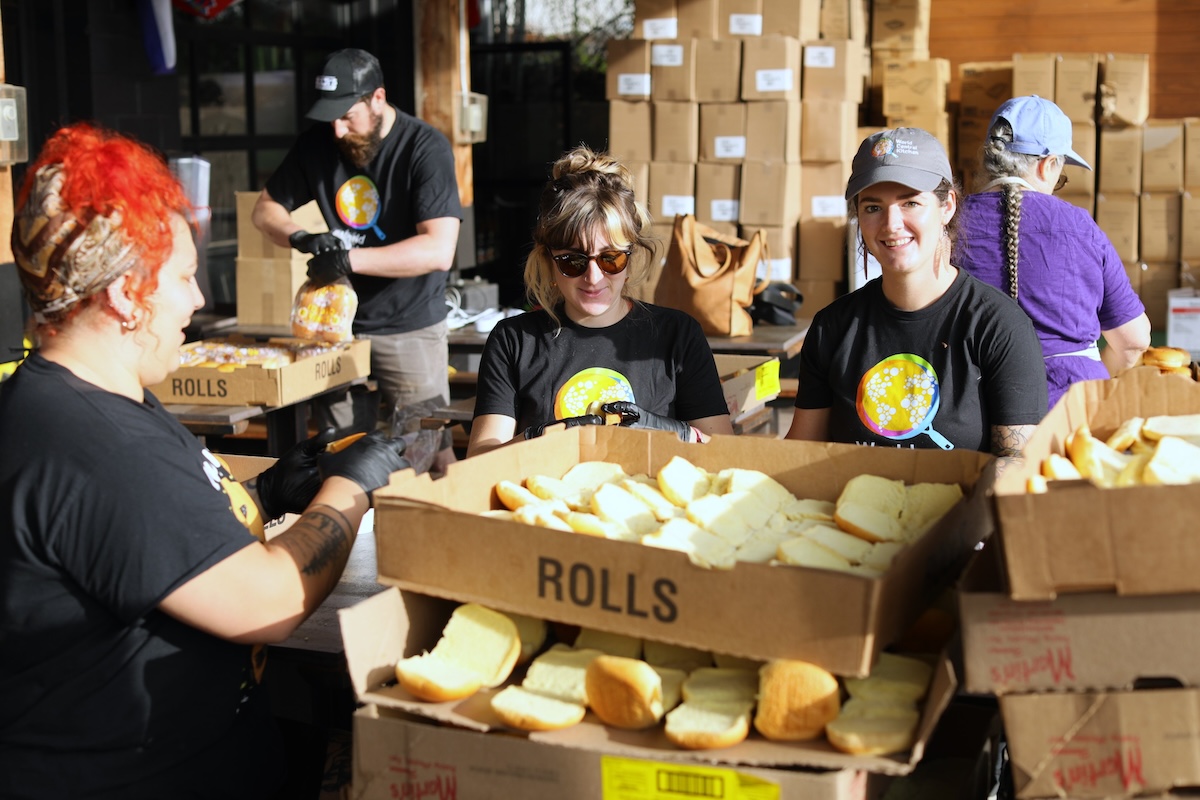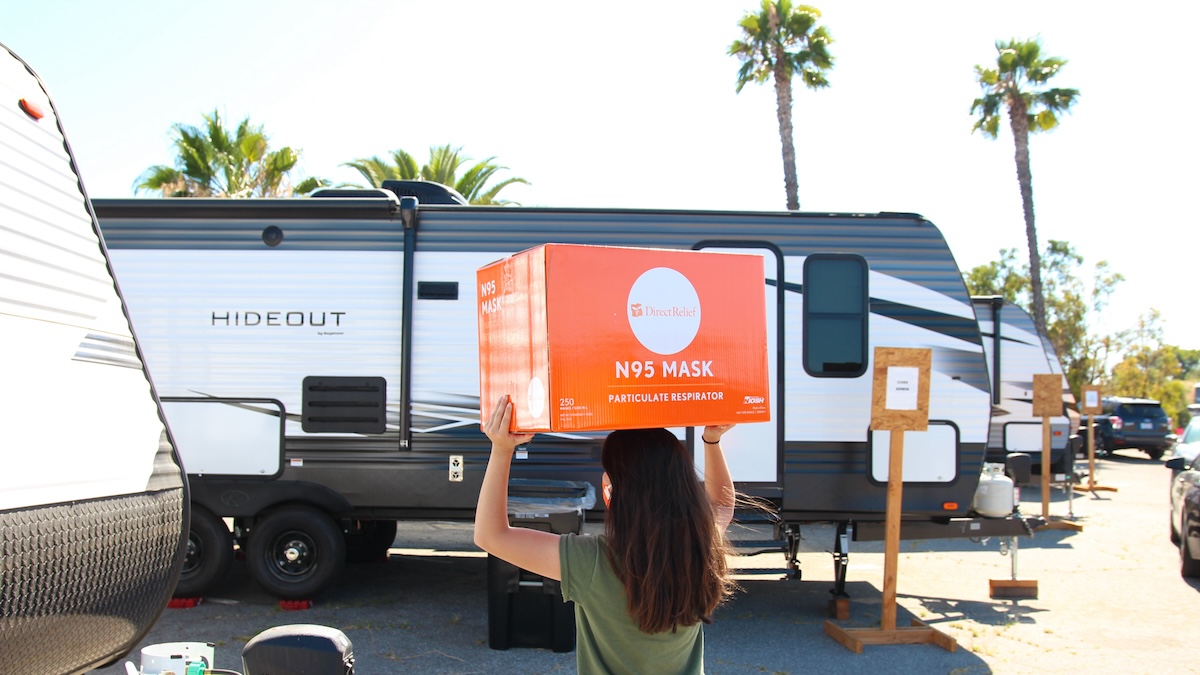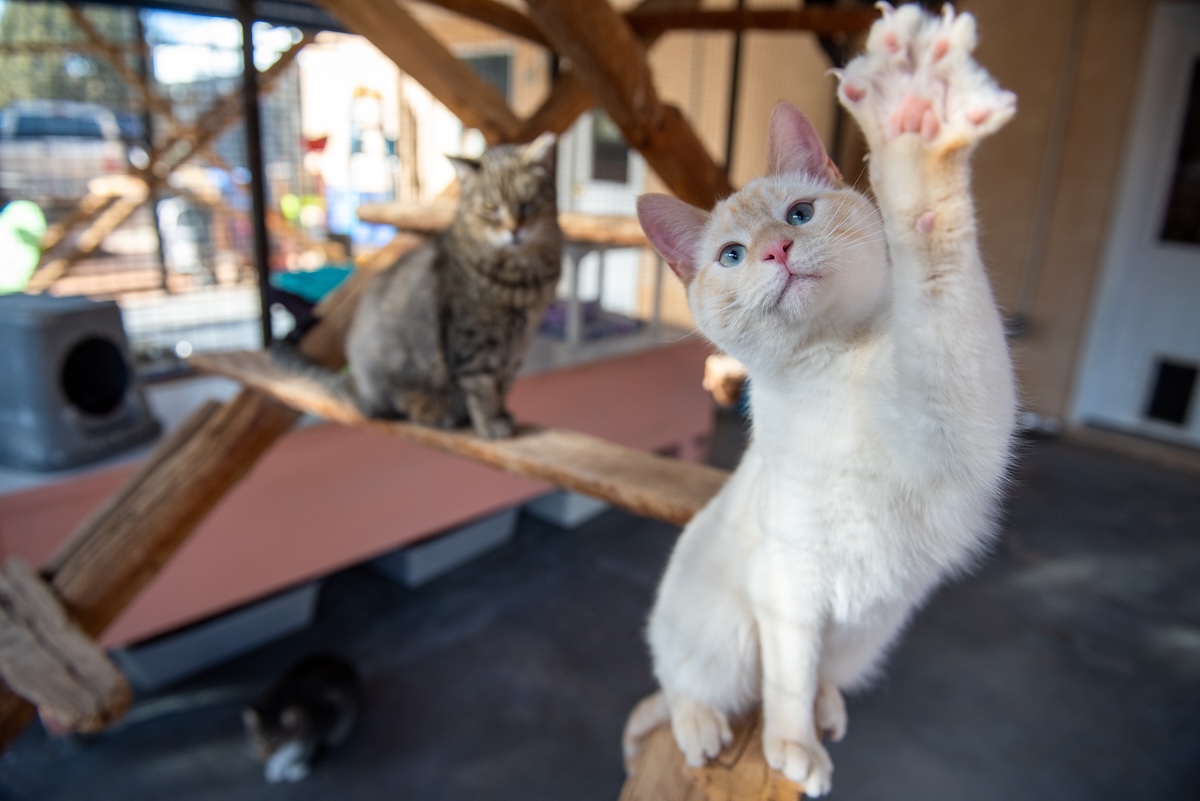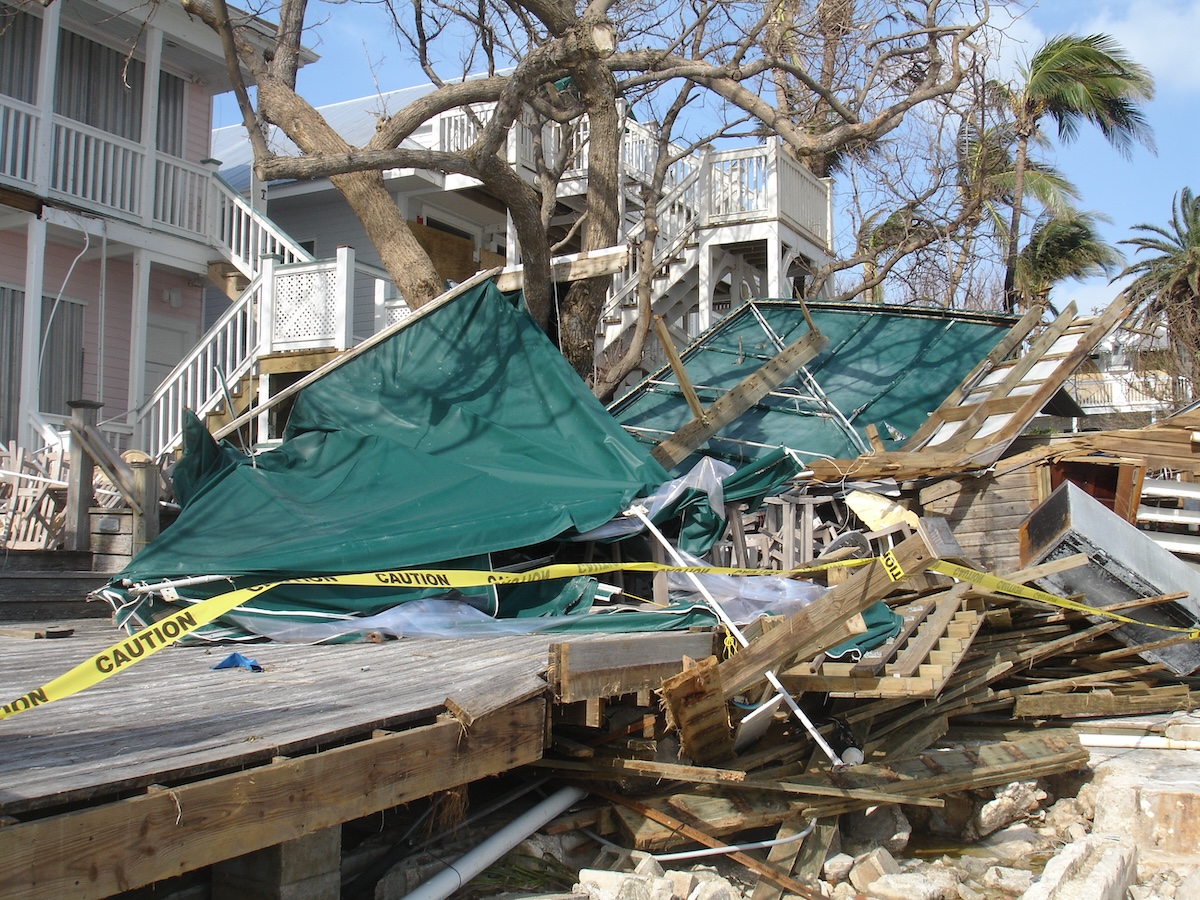We may earn revenue from the products available on this page and participate in affiliate programs. Learn More ›
Hurricane Helene, which made landfall a few weeks ago, left a lot of damage and destruction in its wake. The catastrophic and historic flooding it caused in Florida, Georgia, North Carolina, and South Carolina has led to more than 200 confirmed deaths, with many people still missing. And, if all the destruction that we’ve seen from Hurricane Helene wasn’t bad enough, there is another hurricane barreling towards the Gulf Coast of Florida. Hurricane Milton is poised to be one of the most devastating storms to make landfall near Tampa, with a storm surge of up to 15 feet.
Whether you have family or friends who were affected by Helene or are in the path of Milton or are just concerned for your fellow Americans, you might be wondering what you can do to help. Read on to learn the best hurricane help options to support those impacted by these historic and devastating storms.
1. American Red Cross
The American Red Cross provides humanitarian services to help those affected by natural disasters, such as Hurricane Helene and Hurricane Milton. While some of us may have let our guard down after a slow start to this year’s hurricane season, the American Red Cross has stayed prepared and ready to act. It is currently accepting financial donations to support those in need. Donations will go toward providing food, water, shelter, and other necessities to those displaced by the hurricanes. In addition to donating money to support these needs, you can also consider donating blood to help those who may be injured or in need of other life-saving procedures due to Milton, Helene, or other natural disasters.
2. The Salvation Army
The Salvation Army is another national nonprofit that does a lot to support those in need across the country. It is currently responding to those impacted by Hurricane Helene and will offer additional support after Milton strikes. Some of the ways the organization is helping to make a difference is through providing free meals (along with support from Southern Baptists Disaster Relief kitchens) across affected regions of Florida, North Carolina, South Carolina, Georgia, Tennessee, and West Virginia. Cash donations will support these efforts and help the organization continue to provide necessary resources.

3. World Central Kitchen
Even if you follow all the advice about what not to do during a hurricane, you may still find yourself in need of meals following the storm because of flooding, power outages, or being completely displaced from your home. World Central Kitchen, founded by José Andrés, travels to communities in need to provide humanitarian support and food to those who need it. They are currently set up in communities that were hit by Hurricane Helene and will almost certainly respond to those affected by Hurricane Milton. Sending a monetary donation will help World Central Kitchen provide more meals to those who need them.
4. Manna FoodBank
Manna FoodBank is also helping keep hurricane victims fed. One community that their resources are focused on is the hard-hit city of Asheville, North Carolina. Monetary donations, which can be submitted online or through mailing a check, will help secure necessary food and personal hygiene items. Additionally, if you are local, Manna is accepting donations at their location in Mills River, North Carolina. Some of the items that are most needed include shelf-stable food items (look for cans with pop-tops for easy opening), baby formula, diapers, and bottled water. Those who are local can also consider volunteering to help. Manna asks that volunteers register online for safety and planning purposes, rather than just showing up.
5. Baby2Baby
Seeing the babies and children who have been displaced by hurricanes is heart-wrenching. Baby2Baby is a charity that donates diapers, formula, clothing, and other essentials to babies and children in poverty. They are also currently helping to support those who have been affected by Hurricane Helene. Monetary donations will be used to fill requests for necessary items for families and children. Boarding up windows in a hurricane can help, but it may not be sufficient to save a family from being displaced and relying on others for their basic needs.

6. DirectRelief
DirectRelief has been providing assistance to those hit by Hurricane Helene in the form of emergency medical supplies, hygiene kits, and transportation. The organization has already granted more than $350,000 to health providers in North Carolina and Florida. While addressing these existing needs, the organization has also started coordinating with other organizations to prepare for the support that will be necessary in the wake of Hurricane Milton. Donations will support both of these avenues of help for those impacted by the storms.
7. Hearts with Hands
A Christian, non-denominational, nonprofit organization, Hearts with Hands delivers a “Box of Hope” to individuals affected by natural disasters. These boxes may include food, water, hygiene products, baby supplies, pet food, and other essentials. To support Hurricane Helene victims, the organization is currently accepting donations in the form of online payments or checks. If you are local to the warehouse in Swannanoa, North Carolina, you can also help by dropping off new and unopened non-perishable foods, baby supplies, medical supplies, bedding, and other items. The most needed items are listed on the organization’s website.
8. Best Friends Animal Society
Humans aren’t the only ones affected by hurricanes. Sadly, these storms also leave animals without homes and overwhelm local shelters. Best Friends Animal Society is working to provide resources to local animal shelters so that they can continue helping animals in their area. The organization is also monitoring Hurricane Milton and preparing to respond to support the animals that are impacted by it.

9. National VOAD
The National Voluntary Organizations Active in Disasters, or National VOAD, is requesting cash donations to help support individuals across the Southeast United States who have been impacted by the destruction caused by Hurricane Helene. Cash donations provide the organization with flexible use options, helping it to better support the specific and evolving needs of those hit by the hurricane—as well as the impending destruction that Milton will unleash.
10. North Carolina Disaster Relief Fund
While building codes may be changing due to natural disasters, that doesn’t help those who have already lost their roof, entire home, or been otherwise impacted by devastating flooding or wind damage. The North Carolina Disaster Relief Fund, which partners with the United Way of North Carolina, has been working to meet the needs of those who have faced life-changing and catastrophic flooding and other impacts from Hurricane Helene. The tax-deductible donations will be used to reimburse local nonprofits and/or provide grants for those in need.
Know How to Help without Getting Scammed
If you’re looking to help those in need, the last thing you want is for your donation to get into the wrong hands. As horrible as it sounds, there are always people who look to exploit those affected by tragedy and take advantage of those who are trying to help them. To avoid getting scammed, donate directly to trusted organizations in need. Credit card donations through secure payment portals are more secure than cash donations to individuals you do not know. Do not donate through links that are texted or emailed to you or unsolicited phone calls. When donating online, be sure to verify that you’re on the correct website—and that the organization’s name is correct. Some scammers will create nearly identical websites and use them to steal donations.


